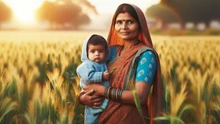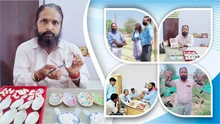
GreenX Telemechanics has created ‘snackuit,’ which are edible cups and plates that offer a sustainable alternative to single-use plastics. The firm has collaborated with Sheryl Mboya (a Mount Kenya law student and snackuit patent holder) to develop innovations that aim to contribute to climate action.
Faced with the challenge of deteriorating climatic conditions, this innovation aims to eliminate single-use plastic by providing an environmentally safe and biodegradable alternative to plastic materials. The alternative material is derived from a common food product and is safe for marine and land animals, birds, and humans to consume.
The material can be used to make plastic products such as disposable utensils that can be eaten after your meal is finished.
Snackuit is made with ingredients rich in fibre, magnesium, iron, manganese, amino acids, calcium, folic acid, essential fatty acids, omega-3 and omega-6 fatty acids, and antioxidants, and contains no sugar, fat, or cholesterol.
"Snackuit is made from edible ingredients." As a result, the finished product is edible and can be consumed by all living organisms (humans, plants, land and sea animals). It is allergy-free, cholesterol-free, and sugar-free," says Sheryl Mboya in an interview with the Daily Nation.
According to Mboya, the invention occurred in the midst of calls for climate action to reduce plastic pollution in Kenya and around the world.
"Snackuit addresses the latter solution by providing a more sustainable and innovative alternative to plastic consumption and, as a result, plastic pollution," she continues. Mboya's targeted market includes everyone and every industry that uses plastics, stating, "This is not limited to individual consumption of plastics."
"As a result, we are honoured to work with Kenya Airways through the Fahari Innovation Hub to oversee their transition away from plastic consumption in their business operations and toward a more sustainable alternative."
Following the Kenyan government's directive to ban all single-use plastic bags in 2017, the development of innovative alternatives to single-use plastic has increased. This came after the country signed the Clean Seas initiative, making it one of the first African countries to commit to limiting plastic in its waterways.
In 2019, Leila Siljeur, a Chemical Engineering student at Stellenbosch University (SU) in South Africa, invented edible straws, similar to Mboya. She created three types of edible and environmentally friendly straws: gelatine for regular straws, plants for vegan straws, and fruit for the health variety.
Demand for biodegradable packaging is increasing globally, with Markets and Markets forecasting that the global edible packaging market will grow from $527 million in 2019 to $679 million by 2025, at a CAGR of 4.3 percent.











